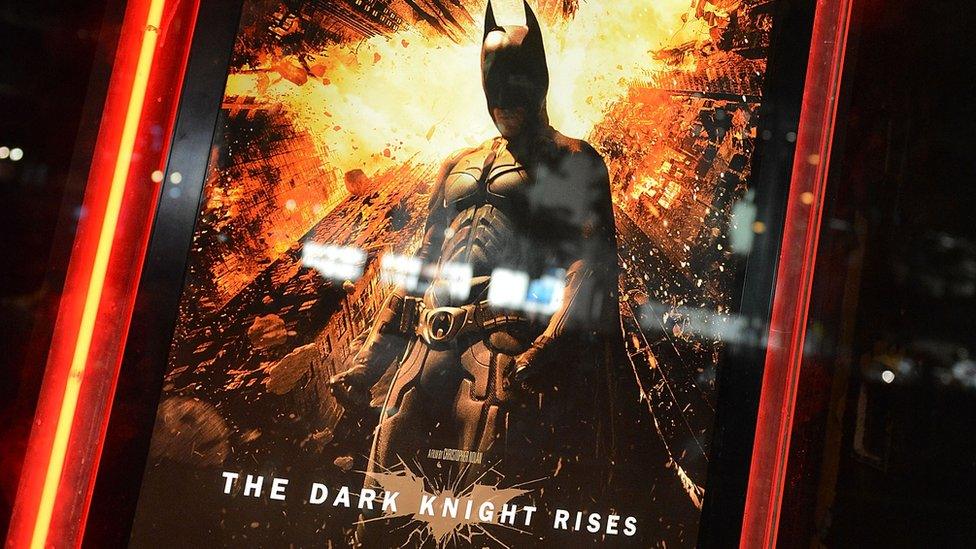The Great Wall: Is Matt Damon 'whitewashing' or good business?
- Published
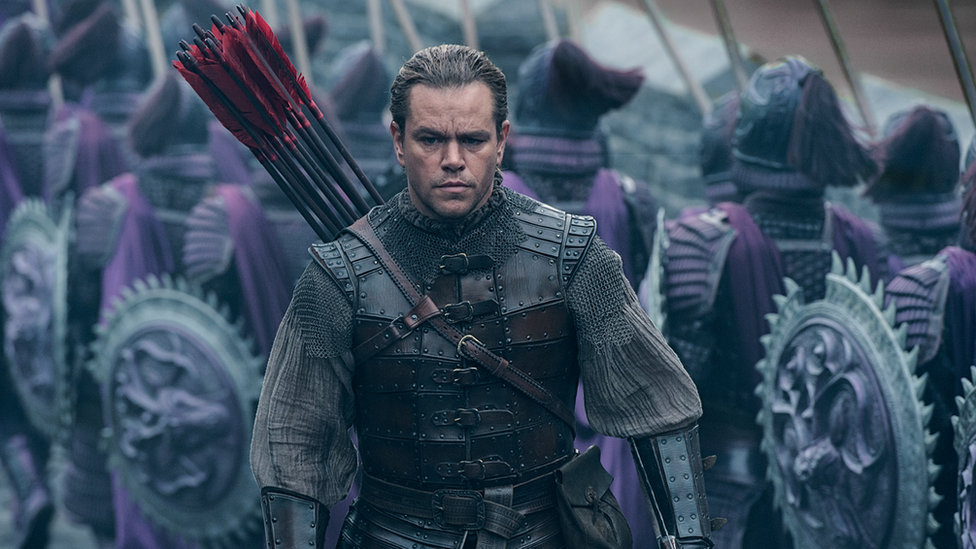
Matt Damon stars as the male protagonist in this American-Chinese science fantasy action film
The trailer for the film The Great Wall, which at $150m (£113m) is reportedly the most expensive Chinese production ever, has been released online.
Starring Matt Damon, the film is set 1,000 years ago and follows "an elite force making a valiant stand for humanity on the world's most iconic structure", goes the publicity material tease.
Also starring Willem Dafoe and Chinese superstars Andy Lau, Wang Junkai and Jing Tian and directed by Chinese megastar Zhang Yimou, it looks set to be the first big-budget, English-language Chinese blockbuster.
The dramatic trailer asks the question, external: what were they trying to keep out?
A brief glimpse of something monstrous attacking the Great Wall gives some hint of the answer, but on social media, people had another theory.
"What were they trying to keep out? Asian actors out of Hollywood apparently," said one of the many people on Twitter picking up on the oddness of the lead role in a film about ancient China going to a white male Hollywood actor.
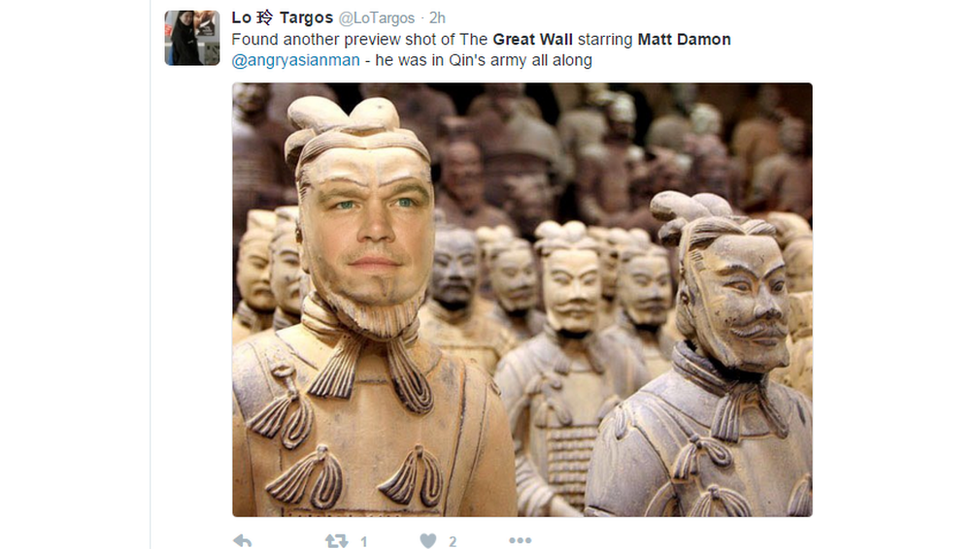
This user proposes that perhaps Matt Damon was part of the Terracotta army, belonging to the first emperor of China Qin Shi Huang
"Now, what about that movie about the Great Wall of China starring everyone's favourite Chinese actor, Matt Damon?" another netizen joked.
"So if you're from China, why are you white?" asked another, referencing pop-culture classic Mean Girls.
There is no indication yet of what Damon's role is, and he certainly hasn't been made to look Chinese, a technique which has not gone down well recently in other films.
Chinese fans, though, did not seem that fussed about Damon's role, instead praising the director Zhang Yimou for bringing "Chinese elements to a Western film".
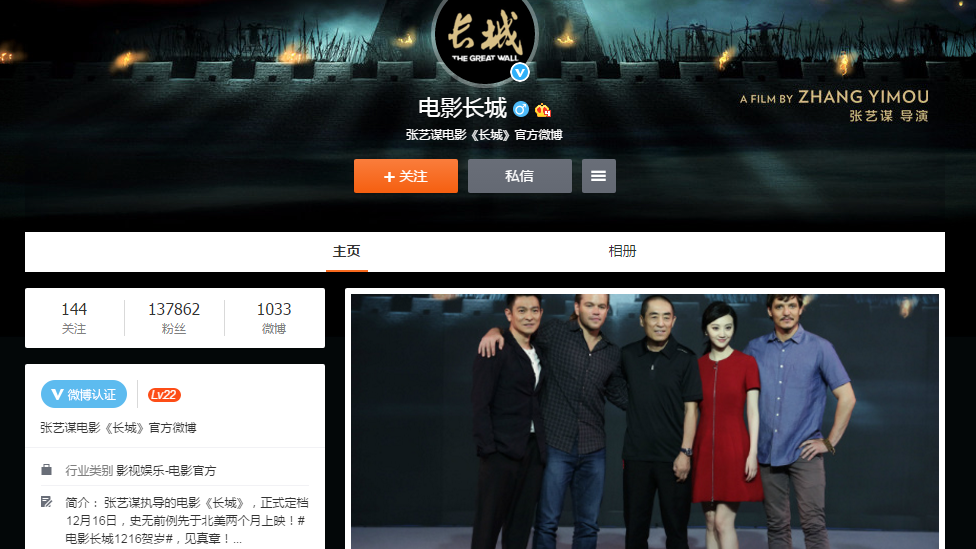
The Great Wall's Weibo page quickly racked up over 130,000 fans and counting
In fact, among the hundreds-of-thousands of posts on micro-blogging site Weibo, reaction to Damon was totally eclipsed by the excitement about a brief appearance by Wang Junkai, external, frontman of the hugely popular Chinese boy band TF Boys, as some kind of boy emperor.
"From a silly child into an outstanding boy, Wang Junkai has achieved a breakthrough for all to see. I hope he takes audiences in The Great Wall by surprise," said one Weibo-user.
"Thank you Zhang Yimou for giving Wang Junkai this precious opportunity. We can't wait for the movie to come out!"
"Through his excellent acting skills, I hope Wang Junkai will bring us closer to understanding the history of the great wall."
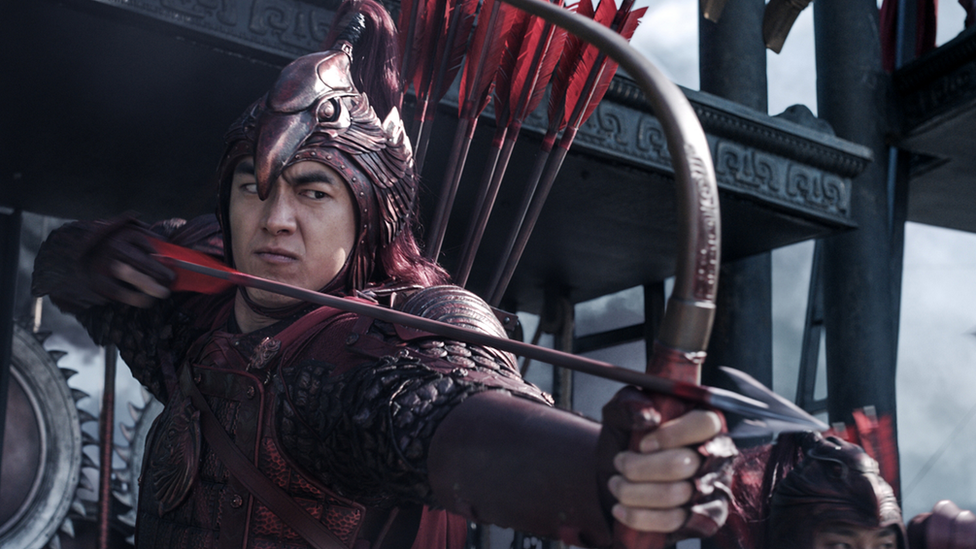
Chinese fans appeared to be excited about the movie, many praising Zhang for bringing "Chinese elements to a Western film"
Those who did talk about Damon said they liked him and were excited to watch him in the film.
One netizen noted that the "influence of Matt Damon" could help the movie succeed, adding that it was a "positive factor".
The Great Wall quickly racked up more than 130,000 fans on Weibo, while the Chinese video trailer was shared more than 400,000 times in less than 24 hours.
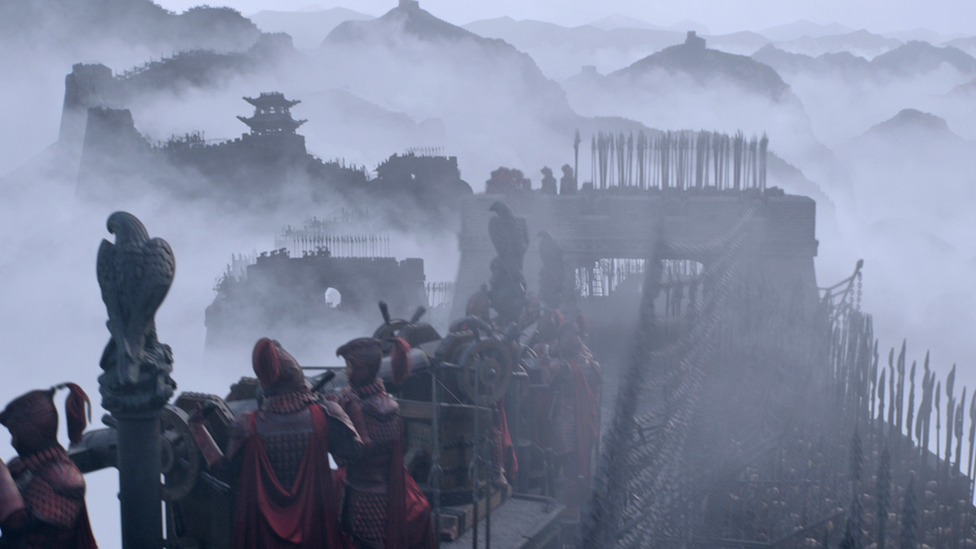
Backing the project are movie giants such as Universal Pictures, state-owned China Film Group and Legendary East
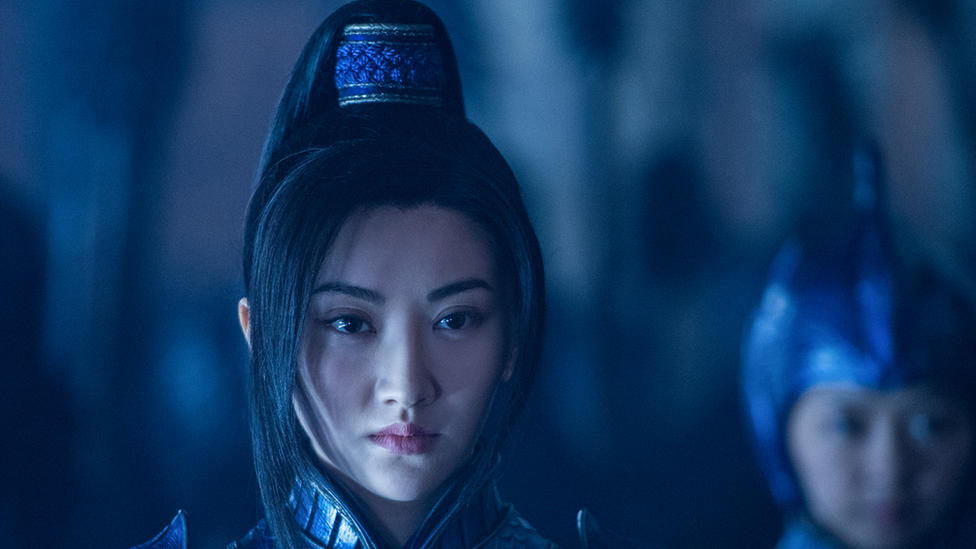
Jing Tian is a popular Chinese actress from Shaanxi, China
The Great Wall, to be released in 2017, is the English-language debut for Zhang, who has said it is the biggest film he has ever worked on.
"This is an English-language film and a Hollywood blockbuster," Zhang told news outlet Entertainment Weekly, external. "We are using Hollywood filmmaking to introduce Chinese culture."
Backing the project are movie giants Universal Pictures and Legendary Entertainment.
Legendary, the company behind The Dark Knight and Straight Outta Compton, was recently bought for $3.5bn by Dalian Wanda, the Chinese conglomerate owned by one of China's richest men, Wang Jianlin.
Filmmakers are all looking to conquer the immense Chinese cinema market, which is on course to surpass the US as the world's largest.
China's strict censorship laws, as well as rules to protect the domestic film industry, have prevented many Hollywood films from being released in the mainland, so US studios are increasingly co-producing films with Chinese investors in a bid to counter this.
Several Hollywood films have actually ended up doing notably better in China than at home.
Warcraft: The Beginning, also produced by Legendary Entertainment, was considered to have bombed in the US but took $156m in its opening week in China.
The Great Wall, however, is clearly hoping that it has the right recipe to captivate the two biggest cinema audiences in the world.
- Published14 June 2016

- Published12 January 2016
